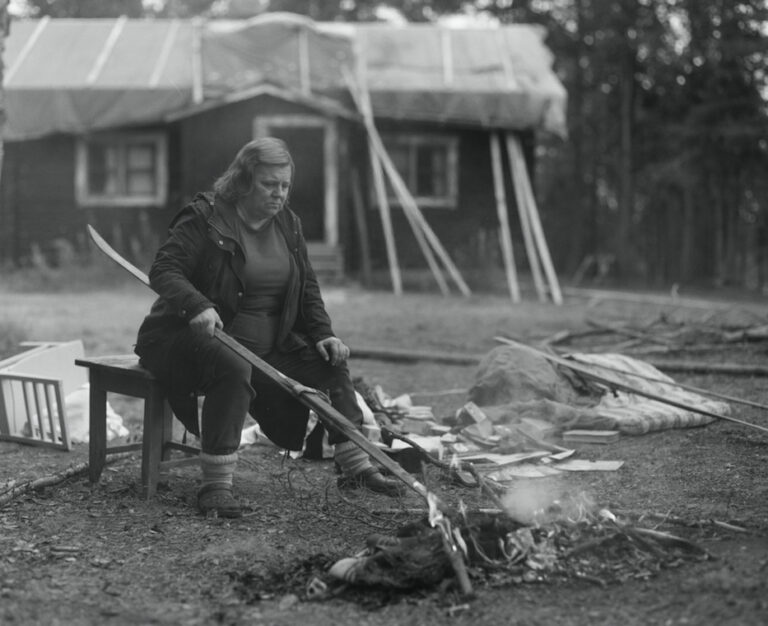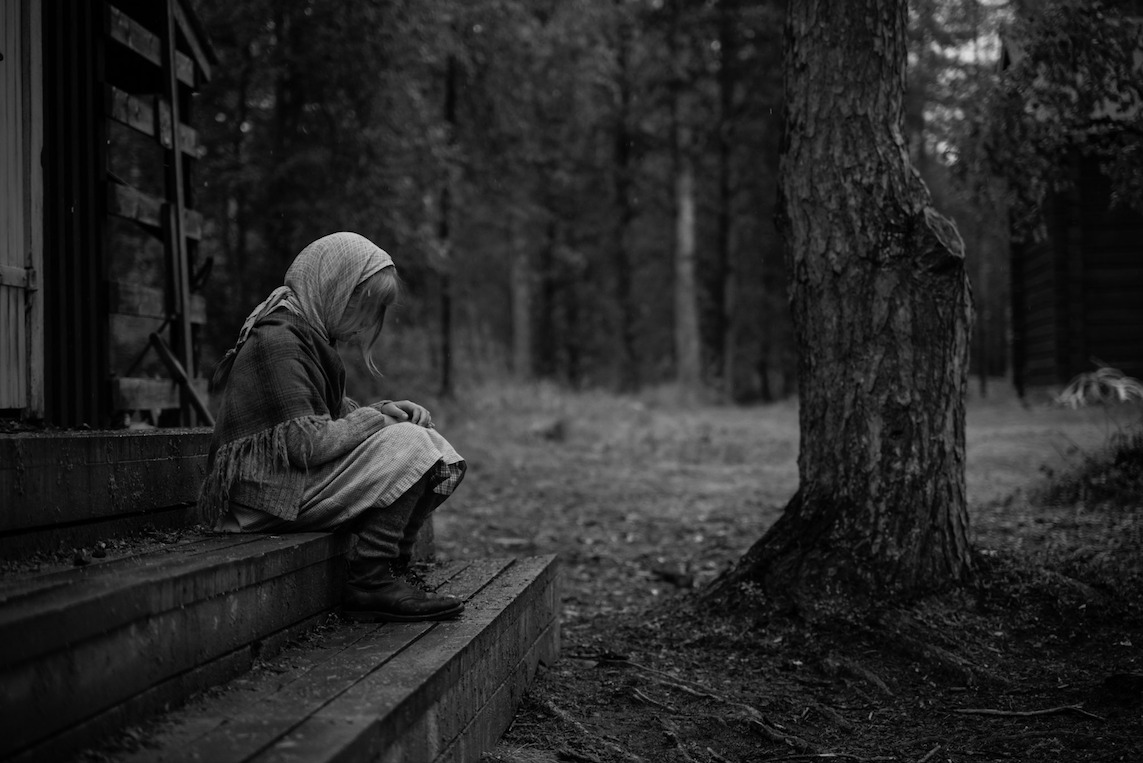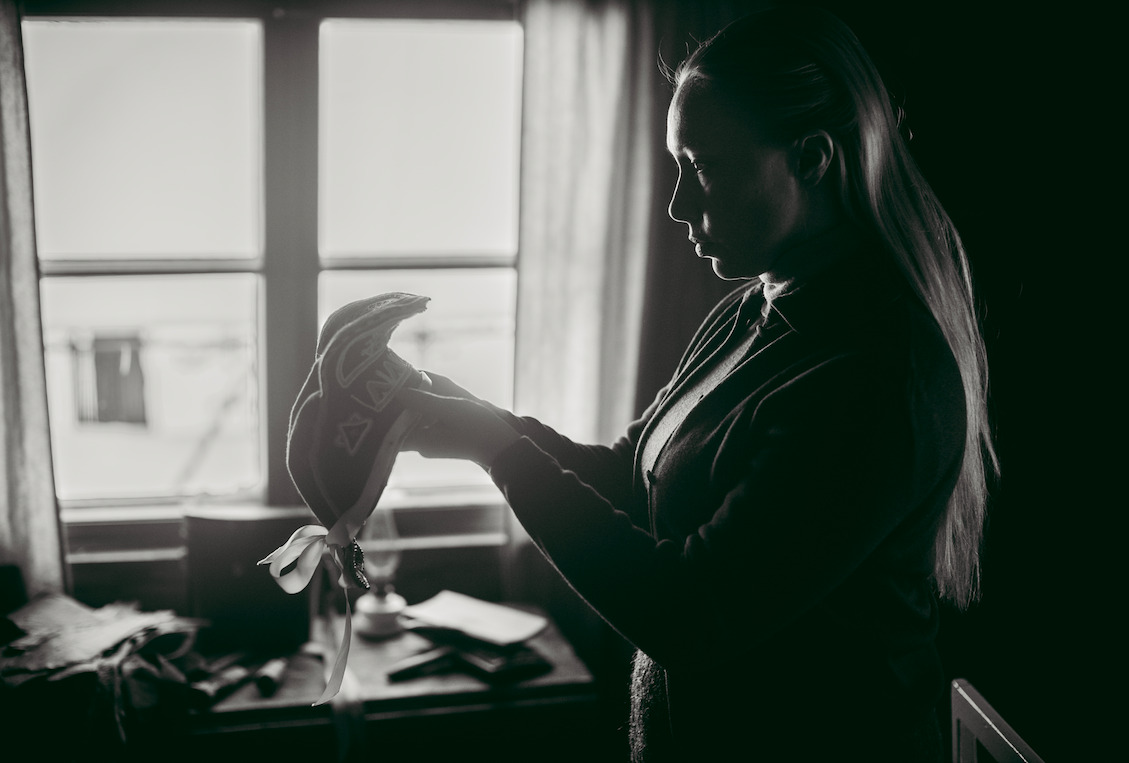
Katja Gauriloff, the award-winning film director from Finland, presents at the Tribeca Film Festival another of her influential films: Je’vida. The beautifully-shot, black and white, picture is a journey of acceptance, discovery and reconciliation.
The narrative opens up with an aunt (Lida) and her niece (Sanna) who have never met before and drive to Lapland to empty a house they inherited. The older woman is unwilling to answer the questions concerning her sister and family. But as they open the door and pass the threshold of the simple house, nestled in woods, memories creep in like ghosts and catapult Lida back to her childhood. Upon finding the traditional headdress of an indigenous Skolt Sámi wife, a šaamšiǩ, the house starts to speak to her.

Lida’s fondest remembrances are the ones when she went fishing with her grandfather. Their family further included her older sister Anni (Sanna’s deceased mother), her grandmother and mother.
Life in the wilderness used to be a simple one, often challenging, but more harmonious for the young Lida whose world changed when she was sent to school. Away from home, she was forced to give up her native Lappish tongue to speak, read and write in Finnish. But above all, her tutors inculcated shame for her Native origins. This brought her to reshape her identity, starting by changing her name and abandoning her real one: Je’vida.
Fortunately the therapeutic encounter between a new generation, in search for answers, and an old one, in need of healing, will help aunt and niece recover.
The latter will reconcile with a past she was obliged to set aside, whilst the former will take an important decision to claim her place in the chain of generations.

The screenplay — penned by Katja Gauriloff and Niillas Holmberg — is based on true events that the director’s mother and relatives experienced during their childhood and youth. Just like in the film, after the Second World War in Finland fierce policies of assimilation were forced upon many Sámi people: children were sent to boarding schools, distanced from their families, taught to be ashamed of their background and had to abandon their language and culture.
These institutions were closed definitively in 1980, and until today the State of Finland has acknowledged no responsibility for the damage caused to the Sámi communities.
The talented cast — Agafia Niemenmaa, Heidi Juliana Gauriloff, Sanna-Kaisa Palo, Seidi Haarla, Erkki Gauriloff, Matleena Fofonoff — excels with non verbal communication. Every emotion is interiorised, no lines of dialogue are wasted. A frown of the brow and a melancholic gaze become silent soliloquies of woe. The beguiling cinematography by Tuomo Hutri and the gentle editing by Timo Peltola draw inside the story, conveying an eerie and nostalgic atmosphere. Whilst the music by Laura Naukkarinen enhances the entire contemplative mood.
Je’vida confronts a timely topic, at a time when indigenous rights to cultural survival are being discussed worldwide. Hence, this impactful film becomes a universal call to action for all the Peoples who were assimilated by a dominant group, who should finally be given back their place in the sun and above all their identity.
Final Grade: B

